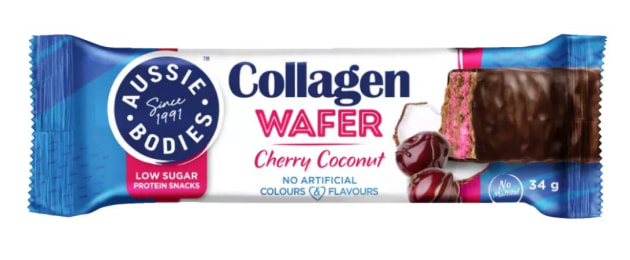Collagen is a trending ingredient in foods and beverages, but what about the sustainability of its use? Amanda Thomas, the sales and business development manager for Hawkins Watts Australia takes a closer look.
With its clinically evidenced benefits in skin, joint and bone health, and sports nutrition plus a neutral taste, it’s no surprise that collagen has captured the interest of consumers around the world.
Essentially, collagen is a structural protein found in the body’s connective tissue. It is abundant in animal skin as well as certain cuts of meat and fish.
In Australia, the most common types of collagen used are of bovine and marine origin and can be found in sports supplements, nutrition bars, dairy, snacks, carbonated soft drinks and more.
However, health isn’t the only thing that matters to Australian consumers. The past few years have also seen a rise in the number of people prioritising sustainability and environmental issues.
Research by consulting firm EY in 2021 found 7 in 10 Australians think about sustainability when making purchase decisions, and Mintel found 70 per cent of US consumers expect food and drink brands to be ‘environmental stewards’.

So, while collagen ticks all of the boxes on the nutrition front, it is important to also consider how it stacks up on the sustainability front.
Firstly, do your research on the specific collagen supplier. Like most ingredients, quality and environmental standards can differ wildly depending on the supplier.
Making sure that the collagen you are using is sourced from certified factories that adhere to food and quality standards is critical. Similarly, checking that the supplier you are working with has full traceability is good practice.
Most reputable suppliers will have information available on the actions they are taking to promote sustainability. Things like focusing on wastewater treatment, moderating water use and prioritising sustainable technology are all green flags.
It is also worthwhile thinking about the differences between the two most common types of collagen found in Australia – bovine and marine. Bovine collagen is usually sourced from cow hides, and marine collagen is sourced from fish skins. Both can be excellent ingredients to use in functional food and beverages or dietary supplements depending on your requirements.
Bovine collagen usually has a very neutral taste and is the most widely used origin collagen in the Australian market, due largely to the fact that we are a beef-consuming nation. As it has a lower cost point than marine collagen this enables a lower overall cost of goods. However, when you are using bovine collagen you need to ensure that the product has been sourced with sustainable and ethical production in mind.
Research shows that livestock accounts for 14.5 per cent of global greenhouse gas emissions, and cows make up a significant proportion of that. The good news is that bovine collagen is sourced from by-products of the already existing cattle industry, but it is still important to check your supplier is working to limit the environmental impacts within their control.
Marine collagen is selected for a variety of reasons. Like other sources of collagen, marine collagen helps to support mobility, healthy ageing, and skin, nail, and hair health.
Some consumers prefer marine collagen over bovine collagen for dietary reasons such as pescatarianism or even for religious reasons. As well as this, there is a widely held perception that marine collagen is more sustainable and ‘clean’ than bovine collagen.
Some producers will use farm-raised fish, some solely wild-caught fish and others a mixture of both. There are pros and cons for either of these sources, but many brands nowadays are opting to pay a premium for sustainably wild-caught marine collagen.
A Marine Stewardship Council (MSC) certification is a good sign that a marine collagen supplier is serious about sustainability. The MSC is an international non-profit that promotes the health of the world’s oceans by recognising and rewarding sustainable practices.
The MSC label is becoming increasingly recognised by consumers around the world as a sign of sustainable seafood. Choosing a marine collagen supplier with MSC certification ensures that best practices are being adhered to and is a guarantee that the product is sustainably and clean-sourced.
Collagen of both bovine and marine varieties can be fantastic ingredients to use in supplements and functional food and drinks. It has a wide range of benefits and is well recognised by consumers. However, with consumers placing more and more focus on sustainability, you need to ensure that the collagen you are using comes from environmentally responsible suppliers.
At Hawkins Watts, we partner with Rousselot, a global leader in collagen-based solutions for more than 130 years. It offers versatile, fully traceable, premium-quality collagen products, and is committed to the highest environmental and quality standards.
This article first appeared in the September edition of Food & Drink Business magazine.






